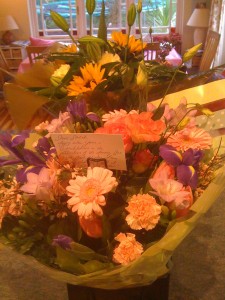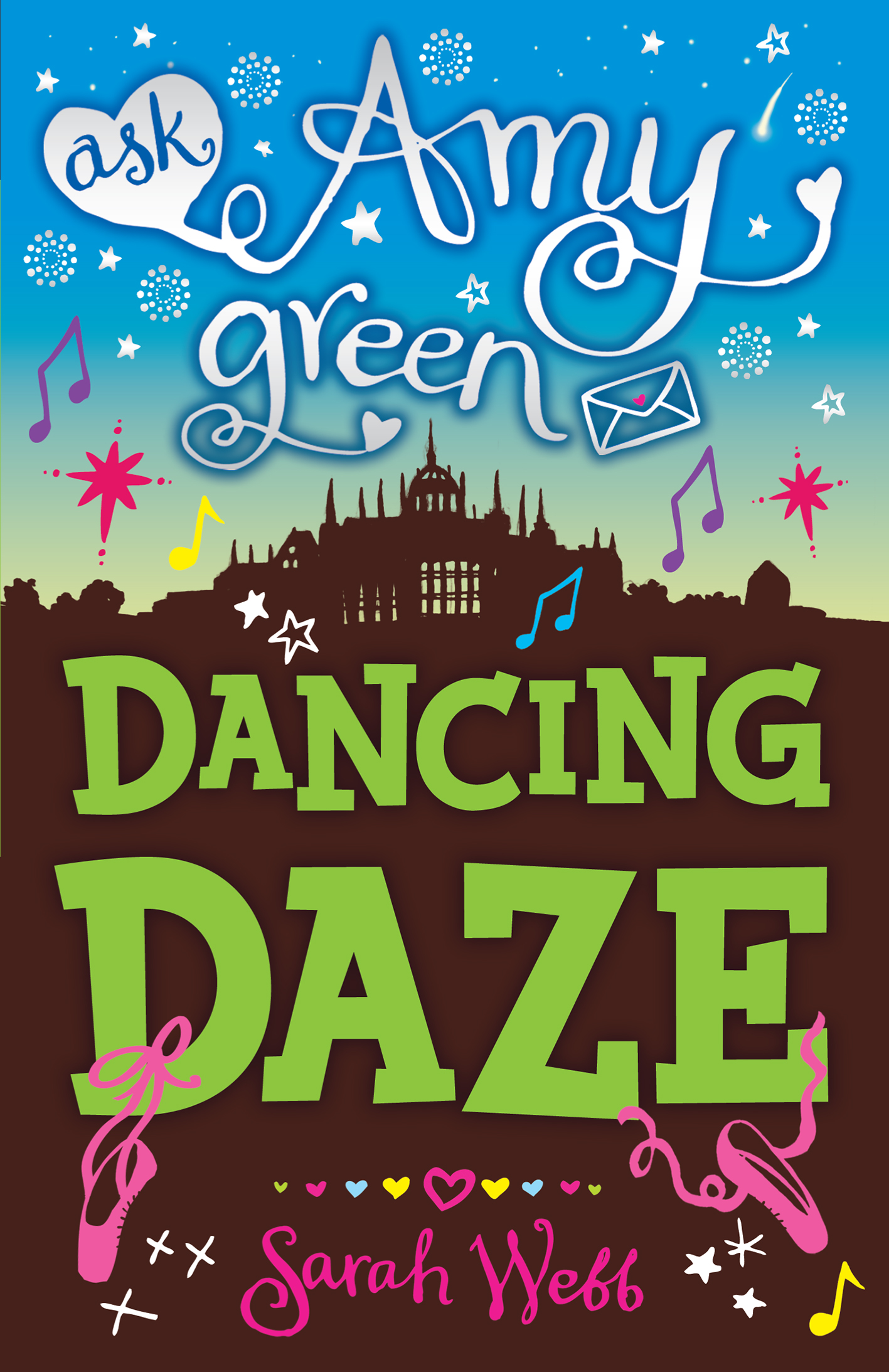Last weekend I spoke at the Waterford Writers’ Festival. The subject of the panel discussion was How to Write a Bestseller. The chair of the session, the very able Vanessa O’Loughlin from www.writing.ie asked us to consider the key elements of fiction writing and what makes a bestselling novel: character, dialogue, plot, making your book stand out. Also on the panel were fellow popular fiction writers Monica McInerney, Sinead Moriarty and Niamh Greene.
It got me thinking about the nature of the ‘bestseller’. A ‘bestseller’ is simply a book that sells a lot of copies, a book that has thousands of happy readers, all actively recommending it to their friends and family, and on Facebook and Twitter (which I think is the way most bestsellers are created – by word of mouth).
So I thought I’d jot down some of the things that came up during the panel discussion in case they are useful. And at the very end I’ll let you in on the secret – how to write a bestseller – as yes, there is a secret!
First of all: Character
We all agreed that creating big, interesting, real, lovable yet flawed characters is the key to writing good popular fiction. Monica McInerney said she creates her characters before plot; for Sinead Moriarty it’s the other way around. But when it comes to characters, you have to think BIG. (I covered this very topic during the 8 Week Write a Book course on this blog).
Monica writes warm, funny family dramas; Sinead’s books tend to have an issue at the centre – breast cancer, anorexia, breakdown of a family unit – and she takes her research very seriously indeed.
Research
Sinead said something very interesting – she said that you can write about anything as long as you do your research, which she finds very freeing. You keep reading until you know your subject backwards, she said. One of her books, Pieces of My Heart (about an anorexic teenager and her family’s struggle to help her get well again) took a lot of research and after the first draft she had to go back and unpick the chapters that were too research heavy and rewrite them. She was very honest and open about this, which I think was helpful for people to hear. Rewriting is a topic that came up a lot. More about that in a second.
But next: Dialogue
Niamh Greene talked about dialogue and how important it is to get it right. She reads out her dialogue and works on it until it’s perfect. I talked about how each character has to have their own way of speaking in a book, their own voice. If you are unsure about how to approach dialogue, read some of the masters - Roddy Doyle, Marian Keyes, Anne Tyler.
Plot
I explained how important it is to select a subject/setting that you really, really want to write about. It has to be something that fascinates you and that you’re dying to tell your readers about - eg zoo keeping (my latest novel, The Shoestring Club has a zoo keeper in it), the life of a young ballerina (Ask Amy Green: Dancing Daze – now that research – in Budapest – was such fun!).
I always say there are two types of people, the planners and the seat of the pant-ers. Planners know where their passport is weeks before travelling, seat of the pant-ers don’t. If you’re a planner, you may need to plan your book. I’m a planner and I make detailed plot notes for every scene of every book. Now, often these change once I start writing, but I need the plot notes to start a book in the first place – it’s like my safely net in case I get stuck along the way. A book takes a long time to write, and you need all the help you can get!
Monica is not a planner, her books evolve as she writes; Sinead is a planner. We are all different writers, just as we are all different people.
Theme
I talked about theme, about how your book has to say something. At the heart of The Shoestring Club is a family secret and the book is about how a buried secret can have devastating consequences.
Julia, the main character, blames herself for her mother’s death – this is at the heart of every mistake she makes in life. And until she comes to terms with this, she will never live a full life.
What’s your book about? Can you tell me in a few lines? If not, you need to work on your book’s theme. And this doesn’t always come easy. Sometimes the theme won’t be clear to you until after your first or second draft.
Rewriting
The difference between a published novel and an unpublished novel - the rewrites. Simple as that. Your first draft is just a starting point. Keep working on it until it's a perfect as you can make it. Again, see my Write a Book Course for more on this.
Motivation
You have to want to write more than anything in the world. If you don’t have this overwhelming drive and passion, there’s no point in writing. Marilyn Munroe once said:
‘I wasn’t the prettiest, I wasn’t the most talented, I simply wanted it more than anyone else.’
Do you want to get published more than anyone else?
Because that’s the secret. Motivation, tenacity, drive. And the willingness to be honest, to cut a vein and bleed all over the page; to write about things that scare you, upset you, terrify you. You have to dig deep. It has to hurt. If it doesn’t, there’s no point writing. Unless you have to write, unless you have a burning need to tell people about something that means everything to you, don’t bother.
I’ll leave you with these final words from Pablo Neruda:
‘For me writing is like breathing. I could not live without breathing and I could not live without writing.’
Yours in writing,
Sarah XXX







![IMG_1863[1]](https://images.squarespace-cdn.com/content/v1/58973315e4fcb5808a5b7d9e/1486377446879-G0YXOL4ISVFTFRI6G0L5/IMG_18631-e1350983013257.jpg)
![IMG_1862[1]](https://images.squarespace-cdn.com/content/v1/58973315e4fcb5808a5b7d9e/1486377446719-90MQZ81MCX0QD2O6KDTD/IMG_18621.jpg)






![IMG_1607[1]](https://images.squarespace-cdn.com/content/v1/58973315e4fcb5808a5b7d9e/1486377432672-5I8S3TM8EXMTAP4SD6FF/IMG_16071-e1340719607172-150x150.jpg)
![1387486_com_sipod[1]](https://images.squarespace-cdn.com/content/v1/58973315e4fcb5808a5b7d9e/1486377432285-SSP5M1XOTP43YXNOUCHU/1387486_com_sipod1-150x150.png)
![41CAPCX8P5L._BO2,204,203,200_PIsitb-sticker-arrow-click,TopRight,35,-76_AA300_SH20_OU02_[1]](https://images.squarespace-cdn.com/content/v1/58973315e4fcb5808a5b7d9e/1486377432071-QPVDHH0B03Z8VPL954MK/41CAPCX8P5L._BO2204203200_PIsitb-sticker-arrow-clickTopRight35-76_AA300_SH20_OU02_1.jpg)
![book-cover[1]](https://images.squarespace-cdn.com/content/v1/58973315e4fcb5808a5b7d9e/1486377431647-NJ5BC0NCOXFU9ZFD86Z1/book-cover1.jpg)
![9780701187194-large[1]](https://images.squarespace-cdn.com/content/v1/58973315e4fcb5808a5b7d9e/1486377431013-8RTNTJ6W58OBDMMRBQQ1/9780701187194-large1.jpg)
